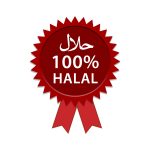The women of Sisak have presented the first halal cookbook to Croatia.
With the goal of promoting halal nutrition and raising awareness of its importance, young girls and women who are part of the Women’s Council of Sisak “Nahla” have designed and created the first Halal cookbook in Croatia, titled “From Nahla’s Halal Kitchen”, reports HRTurizam on May 8, 2018.
The publisher of the cookbook is the Halal Quality Certification Center, and a halal diet is, by its characteristics, in full compliance with the contemporary principles of proper nutrition, namely: to eat healthily, often, moderately and varied.
The cookbook boasts over eighty recipes of traditional and modern cuisine, which the authors either designed or enriched with their ideas – and the stamp of its uniqueness and value was given by two professional reviewers and prestigious chefs, Goran Raguž and Nihad Mameledžija. In the cookbook, readers can find a varied selection of options from appetizers to main courses, soup and pasta dishes, to delicious desserts – incorporating everything from the flavors of Asia to the tastes of the Mediterranean, highlighted chef Nihad Mameledžija.
Member of “Nahla” and one of the book’s editors, Zrinka Hafizović, spoke about the pioneering venture, from the initial idea to its realization, and why they decided to move forward with the project.
“One of the main reasons we embarked on this project was to raise awareness of the benefits of a halal diet. My friends and I noted that when we talk about recipes, we often mention the additional benefits our cooking has produced. We see how much our cooking, in which we put a lot of attention and love, contributes to the warmth of our home, the fragrant atmosphere and the health achieved with delicious and quality food.” The authors thus wish to inspire others and encourage their creativity in achieving new culinary milestones.
All eighty of the recipes, collected or designed by some twenty members of the Women’s Council in Sisak, is based on halal quality raw materials, which guarantees that they are healthy, permissible and varied. A traditional but contemporary cuisine and diet, the cookbook will be promoted not only in Croatia but abroad as well and will be mentioned at many Halal congresses around the world. Because its bilingualism enables readers to overcome language barriers for its promotion and use, the first copies of the cookbook delighted readers from Kuwait.
The women of ‘Nahla’ are convinced that its wealth is ready to satisfy even the most demanding palates.
The Halal Market
Despite the global crisis, the global halal market has risen 40% over the past few years and is expected to grow by 20 to 25% over the next ten years. Currently, the worldwide halal market is estimated at 635 billion USD. Halal food consumption is also increasing in European countries, and particularly in France who boasts the most significant market. The Halal market in Croatia increases by 7-10% annually. It is estimated that the EU halal market value is 66 billion USD, of which 3 billion EUR comes from France alone. The Halal UK market is estimated at around 2.8 billion GBP, according to data by the British Food Safety Agency, and about 6 million people consume halal food. For the food industry of Croatia and the countries of the Halal region, the EU is the most promising market, given that European members of the Islamic religion are the closest and have high purchasing power.
The Halal Diet
The word Halal is an Arabic word that means ‘pure’ or ‘permissible’ and signifies what is permissible or lawful in traditional Islamic law. Halal quality represents the totality of the characteristics of products or services that follow Islamic regulations and meet the requirements of the prescribed quality.
The Quran devotes 119 verses (ayah) to food and drink. Ninety verses are devoted to permitted (halal) meals and drinks, and 29 Quran verses have specific prohibitions regarding meals and drinks. From these verses, there is a strict ban (haram) of pork meat and all the products that come into contact with it, alcohol and all the products that come into contact with it, the carcass, blood, the consumption of animal meat slaughtered in someone else’s name and not in the name of God, and the consumption of animal meat that was not well treated before death, among other things.
More information can be found at the Halal Quality Certification Center within the Islamic Center in Zagreb.
Source: HRTurizam, Medžlis Sisak










